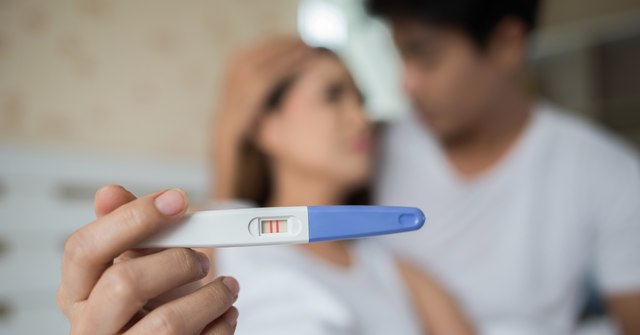Every couple’s pregnancy is a great time in their lives. But, unfortunately, 1 in 6 couples faces trouble in conceiving naturally. Even after trying for a year, if the couple finds it difficult to conceive, it is considered infertility.
Infertility is associated with various reasons:
- Endometriosis
- Severe PCOD/PCOS
- Uterine fibroids
- Unexplained infertility
- Poor sperm quality
- Male-related infertility
But due to the advancements in the medical field, now every couple can get pregnant. Your infertility specialist recommends various types of infertility treatments.
The testing for infertility in for both men and women:
Before recommending infertility treatment, a few sets of tests are performed on both men and women to understand the root cause of infertility better.
The tests performed in males:
Men should see a gynaecologist after trying to get pregnant for a year or if any of the ones that follow are true:
- Low libido
- Concerns like delayed ejaculation
- Erectile dysfunction
Your infertility specialist might recommend a sperm or semen analysis and further check for sperm quality, even the shape of the sperm, and motility. Then, depending on the results of the semen analysis, further tests can be recommended.
The tests performed in females:
The infertility specialist will get a complete history of the health. For example, the specialist might ask the details of the sexual history, menstrual cycle, and previous medical history. Before choosing the treatment, speak to your specialist about the fertility treatment cost to help you make a better decision.
Common types of tests recommended:
Hysterosalpingography:
This X-ray technique examines a woman’s uterus and fallopian tubes.
Ovarian reverse examination:
It determines a woman’s ability to conceive by performing a series of hormone tests, including the follicle-stimulating hormone (FSH) test, among other relevant lab tests.
Here are the major fertility treatments offered:
Intrauterine insemination:
With intrauterine insemination (IUI), healthy sperm are placed within the uterus, increasing their chances of reaching and fertilizing the egg.
How does intrauterine insemination work?
Intrauterine insemination is referred to by its acronym, IUI. Donor insemination is also known as artificial insemination or alternative insemination. In vitro fertilization (IUI) is a method that brings the sperm closer to the egg by placing the sperm directly in the uterus at the moment of ovulation. The shorter the distance the sperm must travel to fertilize an egg, the more successful the fertilization will be.
Fertility drugs that stimulate ovulation can be taken before the insemination procedure. Then, a male partner or a donor will provide the sperm. The technique of “sperm washing” separates the viable sperm from the rest of the semen.
The sperm are then implanted directly into the uterus by the doctor. It takes the fertilization of an egg by sperm and the subsequent implantation of the fertilized egg into the uterine lining for there to be a pregnancy.
Because of its low-tech nature and ease of execution, IUI is often a cheaper option when compared to other methods of achieving pregnancy.
In vitro fertilization:
To facilitate fertilization, embryonic development, and implantation, in vitro fertilization (IVF) is used. IVF process step-by-step performed by the specialists involves extensive procedures in every step.
How does the IVF procedure work?
In vitro fertilization is abbreviated as “IVF.” However, as a form of ART, it has gained considerable notoriety (ART). In vitro fertilization (IVF) aims to help sperm fertilize an egg, and the fertilized egg implants in the uterus. It does this using a mix of medications and surgical procedures.
To begin, you’ll take medication to speed up the development of several eggs so they can be fertilized. The doctor will then remove the eggs from your body and combine them with the sperm in a laboratory to facilitate fertilization. Once the egg(s) have been fertilized, the embryo(s) will be implanted directly into the uterus. When any of the embryos successfully implant in the uterine lining, you will become pregnant.
In vitro fertilization (IVF) is a multi-stage process that can take up to a few months to finish. While some women succeed with the first round of IVF, the vast majority require several attempts. Nevertheless, IVF is a great option for couples struggling with infertility and greatly improves the odds of a successful pregnancy. Still, it isn’t guaranteed because everyone is different, and some people don’t respond to the treatment.
Before recommending IVF and IUI, the specialists may recommend surgery to treat any conditions that can be corrected, blocking the way of conception. Reach out to the Best IVF Center in Sri Lanka if you’re someone looking for infertility treatment in Sri Lanka.
Surgery in men:
Surgical procedures can remove blockages that prevent sperm from entering the ejaculate. Moreover, it can treat disorders such as varicocele. In certain instances, sperm can be extracted straight from the testicles and used in ART therapies.
Medication may be used to address hormonal abnormalities and other conditions. In addition, they can be used to address other diseases that can influence male fertility, like erectile dysfunction and infections that reduce sperm count.
Surgery in women:
Although surgery occasionally addresses female infertility, its usage has become less common as other reproductive treatments have advanced. Surgical procedures boost fertility by:
- Treating an abnormal uterus
- Fallopian tube blockage
- Uterine fibroid removal
If the conditions are treated through surgery, the couple must not undergo treatments like IVF or IUI. Before settling on infertility treatments, talk to specialists to know if there is a way to treat infertility.
Important takeaway:
Infertility can be mentally and emotionally draining for the couple. There are various types of infertility treatments that you can choose from. Talk to your infertility specialist to know your options and the type of treatment that suits you. If you are a Sri Lankan resident, reach out to the Treatments for Infertility in Sri Lanka to make your dream come true.


